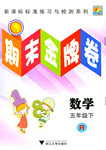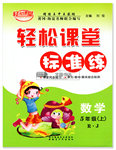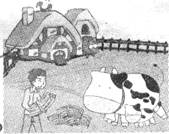题目内容
How should one invest a sum of money in these clays of inflation (通货膨胀)? Left in a bank it will hardly keep its value, however high the interest rate. Only a brave man, or a very rich one, dares to buy and sell on the Stock Market. Today it seems that one of the best ways to protect your savings, and even increase your wealth is to buy beautiful objects from the past. Here I am going to offer some advice on collecting antique clocks, which I personally consider are among the most interesting of antiques.
I sometimes wonder what a being from another planet might report back about our way of life. "The planet Earth is ruled by a mysterious creature that sits or stands in a room and makes a strange ticking sound. It has a face with twelve black marks and two hands. Men can do nothing without its permission, and it fastens its young round people's wrists so that everywhere men go they are still under its control. This creature is the real master of Earth and men are its slaves(奴隶)."
Whether or not we are slaves of time today depends on our culture and personality, but it is believed that many years ago kings kept special slaves to tell the time. Certain men were very clever at measuring(量) the time of clay according to the beating of their own hearts. They were made to stand in a fixed place and every hour or so would shout tire time. So it seems that the first clocks were human beings.
However, men quickly found more convenient and reliable(可靠的) ways of telling the time. They learned to use the shadows cast by the sun. They marked the hours on candles, used sand in hour- glasses, and invented water-clocks. Indeed, any serious student of antique should spend as much time as possible visiting palaces, stately homes and museums to see some of the finest examples of clocks from the past.
Antique clocks could be very expensive, but one of the joys of collecting clocks is that it is still possible to find quite cheap ones for your own home. After all, if you are going to be ruled by time, why not invest in air antique clock and perhaps make a future profit(收益)?
【小题1】According to the passage, collecting antique clocks____.
| A.can hardly keep the value of your savings |
| B.will cost much of your savings |
| C.may increase your wealth |
| D.needs your bravery |
| A.suggest human beings are controlled by a clock |
| B.describe why clocks can rule the planet Earth |
| C.tell readers what clocks look like |
| D.compare chocks to human beings |
| A.Counting the beating of one's own heart. |
| B.Making use of candles, sand and water. |
| C.Observing shadows cast by the sun. |
| D.Keeping slaves busy day and night. |
| A.state-owned houses |
| B.houses in very good condition |
| C.grand houses open to the public |
| D.houses where statesmen meet regularly |
| A.to introduce the culture of antique clocks |
| B.to offer some advice on collecting antique clocks |
| C.to compare different ways to make a future profit |
| D.to explain convenient and reliable ways of telling time |
【小题1】C
【小题2】A
【小题3】D
【小题4】C
【小题5】B
解析试题分析:对于通货膨胀的今天,如何进行投资?放入银行将难以保持其价值。只有有钱的人,勇敢的人才会进入股票市场。今天看来,一个最好的方法来保护你的储蓄,甚至可能增加你的财富。那就是收集古董,我要对收集古董钟表提出一些意见。
【小题1】细节理解题。问题:根据短文,收集古董钟表可能会如何?分析原文:Today it seems that one of the best ways to protect your savings, and even increase your wealth is to buy beautiful objects from the past. 句意:今天,购买古董是保护你资金,甚至提高你的物品价值。结合选项第二项符合。故选C
【小题2】细节理解题。问题:通过引用来自另一个星球的话语,作者打算做什么?分析原文的中心句:After all, if you are going to be ruled by time, why not invest in air antique clock and perhaps make a future profit(收益)?句意:毕竟,如果你是要被时间统治,为什么不投资于古钟,或许未来有收益?通过点题,说明作者建议人们被钟表控制。故选 A
【小题3】细节理解题。问题: 作为一种方法来测量时间,下列哪一项是没有提到?分析原文提到了三种计量时间的方法,第一种测量自己的心跳;第二种是利用太阳产生的阴影;第三种是水钟的发明。因此只有第四项(让奴隶日夜忙碌)是不能测量出时间的。故选D
【小题4】细节理解题。问题: 在第四自然段中,划线词组的意思是什么?分析原文:Indeed, any serious student of antique should spend as much time as possible visiting palaces, stately homes and museums to see some of the finest examples of clocks from the past.句意:事实上,任何喜欢古董严重的学生应该花尽可能多的时间参观宫殿,豪宅和博物馆看到最好的钟表代表。联系实际一定是很好的住宅,结合选项只有第四项(政治家们经常见面的房子,表示很好的住宅。)符合题意。故选C
【小题5】细节理解题。问题:短文的中心思想是什么?通过阅读全文,作者主要是建议在通货膨胀的今天,选择收集古董钟表投资是好的方式。因此在短文中提到了许多的具体建议。故选B
考点:日常生活类短文阅读。

 期末金牌卷系列答案
期末金牌卷系列答案 轻松课堂标准练系列答案
轻松课堂标准练系列答案 Listening test is one of the most important parts of the English exam. Here are some tips for you.
Before you start to listen, you need to relax. Don't be stressed out. And try to read the questions.These questions usually help you understand the conversation or the passage.
Then listen carefully to the first sentence. It usually tells you the main idea of the passage. When you're listening, try to do some thinking and take some notes, such as:
☆What happened
☆When, where, and how
☆What does the speaker want to tell us
In this way, you may understand the passage better,
Please remember not to think about one or two words for a long time. When you hear some words you don't know, don't spend too much time on them. Very often, you'll find out what they mean later when you go on with the listening.
【小题1】This passage mainly talks about______.
| A.tips on listening | B.tips on speaking |
| C.tips on reading | D.tips on writing |
| A.excited | B.relaxed |
| C.stressed out | D.worried |
| A.the answers to the questions |
| B.where to write the answers |
| C.the main idea of the passage |
| D.how much time left (剩余) for the listening test |
| A.remember every word |
| B.take some notes |
| C.understand all the words |
| D.think about one or two words for a long time |
| A.questions | B.first sentence |
| C.notes | D.A, B and C |
Pubs are an important part of British life. Pubs, formally public houses, are common in towns and villages in England.People usually talk,eat, drink,meet their friends and relax there.You can order soft drinks like orange juice,cola or coffee ,but many people go to pubs to have an alcoholic drink.Many types of alcoholic drinks are available, but the most popular drink is beer.
Traditional English beer comes in a variety of local flavors and is called ‘draught’beer .All draught beer is served from a hand pump on the bar rather than in bottles or cans. Unlike American or other European beers, it is served cool but not cold.Nowadays,a lot of English people enjoy a European beers called lager(淡味啤酒).This is lighter, more refreshing(清新的) and is served cold. Beer is sold in pint or half-pint glasses (a pint is just over half a litre).When you order a drink, ask for a ‘pint’ or a ‘half’ of the beer you want to try.
There is no waiter service in an English pub.You go to the bar and place your order to the pub staff. They will pour your drinks and pass them to you. They will then tell you how much to pay.You have to pay your drinks there and then. After receiving your change,you can carry your drinks back to a table to enjoy. It is usual for friends to take turns buying drinks for each other.This is known as’buying a round’.
Pubs sell cheap food too.The choice of food ranges(涉及) from small bar snacks such as crisps and peanuts ,to three-course meals.A popular meal during the summer months is a ‘ploughman’s lunch ’.This is a dish of bread ,cheese or ham ,and salad which is served cold.You will often find a pub’s menu written on a blackboard .There may even be daily specials for you to try.
You must be at least 18 years old to buy alcohol(含酒精的饮料)in England. Children under 14 years old are not usually allowed inside a pub, but families with children can sit outside in the garden, known as the beer garden ,when the weather is warm .Parents are allowed to buy soft drinks for their children.
Pubs are places where people go to enjoy themselves .People like to drink, eat ,talk with friends and have a good time.If you go to an English pub ,you will get a true taste of English life.【小题1】Traditional English beer is __________.
| A.served slightly cold | B.served in pint glasses only |
| C.Served by waiters | D.called lager |
【小题2】The bar staff ___________________.| A.are called waiters | B.expect you to tip them |
| C.pour your drinks before you pay | D.pour your drinks after you pay |
【小题3】If you ‘buy a round’,you ______| A.pay for your drinks at the end of a meal |
| B.taste a variety of beers |
| C.share the cost of drinking with friends |
| D.pay for your own drinks |
【小题4】.Pub food _______| A.is cheese or ham | B.doesn’t cost much money |
| C.is called a ‘bar snack’ | D.is special English meal |
【小题5】.Children _________| A.are allowed in pubs | B.can not drink alcohol |
| C.must not eat pub food | D.must buy rounds of drinks |
【小题6】English pubs______| A.serve only alcoholic drinks | B.are for families only |
| C.serve both food and drink | D.are no longer common in England |
A great way for teens to cool off during the summer is at water parks. If you live near a water park, you might think about getting a season pass. This way you can go as often as you like.
Check to see if there are any water parks around you. Many are indoor facilities. So even if it isn’t warm enough where you live to swim outdoors, you can enjoy swimming in a temperature controlled area.
The prices are usually good. For example, one ticket to Water World, a water park, is only $5.
Some teens like to get a part time job over the summer to make some pocket money. Older teens shouldn’t have much trouble finding jobs.
An idea is to get some teens together to form your own summer job business. You can walk dogs, bring in the newspapers, feed the cats, collect rubbish, water flowers, etc.
Being that it’s summer, many people go on vacation and could use someone to look after their houses while they’re away. You can also think about other jobs you can do for them.
Teens love freedom. Sure you would like to get to such places as the small, movie theaters, the zoo, the beach, picnic, bowling and local amusement park instead of staying home all summer. Then a summer bus pass will be helpful. Check to see if your area has one for you teens.
Such a pass costs only $10 for the whole summer. The price is reasonable(合乎情理的) and also your parents don’t have to always drive.
【小题1】Who is the text written for?
| A.Teachers | B.Parents |
| C.Teens | D.Travelers |
| A.Washing cars | B.Feeding cats |
| C.Walking dogs | D.Watering flowers |
| A.$5 | B.$10 | C.$15 | D.$20 |
| A.find part time jobs | B.go out for fun |
| C.go to summer classes | D.do outdoor sports |
| A.Part time jobs | B.A summer pass |
| C.Water park swimming | D.Things to do in summer |
A blind boy sat there with a hat by his feet. He held up a sign which said, “I am blind, please help.”
There were only a few coins in the hat. A man was walking by. He took out a few coins and dropped them into the hat .He then turned the sign around and wrote something on it. He put the sign back and walked away.
Soon the hat began to fill up. A lot more people were giving money to the blind boy. That afternoon the man who had changed the sign came to see how things were. The boy recognized his footsteps and ask, “Are you the one who changed my sign in the morning? What did you do?”
The man said, “I only wrote the truth in a different way.”
What he had written was, “Today is a beautiful day, but I can’t see it.”
Of course both signs told people the boy was blind. But the first sign simply told people to help by putting some money in the hat. The second one told people that they were able to enjoy the beauty of the day, but the boy could not enjoy it because he was blind.
The first sign simply said the boy was blind, while the second one told people they were so lucky that they were not blind.
There are at least two lessons we can learn from this simple story.
Treasure (珍惜) what you have. Someone else has less. Try your best to help those who need your help.
Be creative. Think differently. There is always a better way.
【小题1】From the passage we know that________.
| A.the boy is the man’s son. |
| B.the man is one of the boy’s neighbors. |
| C.the boy is blind and needs help. |
| D.the boy works for the man. |
| A.Treasure what we have already had. |
| B.Today is a beautiful day, but I can’t see it. |
| C.We are so lucky that we are not blind. |
| D.Try your best to help those who need your help. |
| A.The hat began to fill up after the man wrote some words on the sign. |
| B.The man took away all the few coins from the hat. |
| C.The boy wanted to get enough money to go to school. |
| D.Nobody wanted to give any coins to the blind boy. |
| A.承认 | B.接受 |
| C.表扬 | D.辨认出 |
| A.Giving makes receiving! | B.Be kind and creative! |
| C.Be kind to the blind! | D.Do not always get, but offer! |
